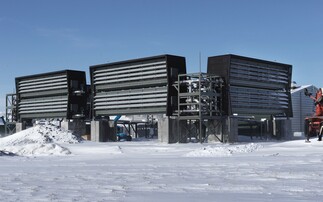The solution to climate change is not to abandon our use of essential products but to focus on ways we can improve them
Modern technology has done wonders for our professional lives. It's impossible to imagine our workflows without access to computers and the internet, but our new dependence on electrical equipment is also...
To continue reading this article...
Join BusinessGreen
In just a few clicks you can start your free BusinessGreen Lite membership for 12 months, providing you access to:
- Three complimentary articles per month covering the latest real-time news, analysis, and opinion from Europe’s leading source of information on the Green economy and business
- Receive important and breaking news stories via our daily news alert
- Our weekly newsletter with the best of the week’s green business news and analysis







